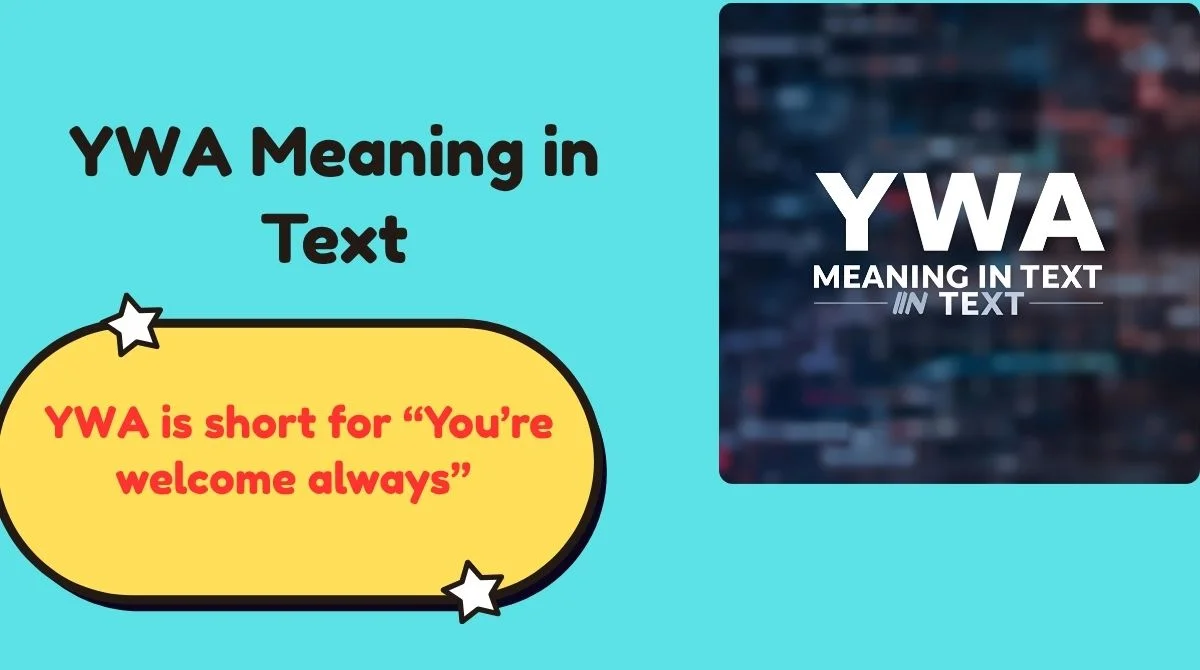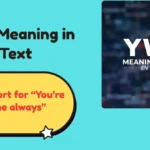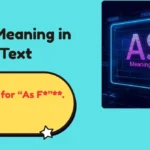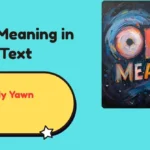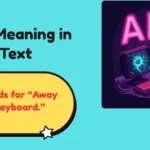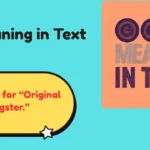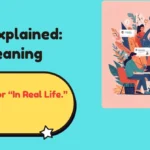In the fast-paced world of texting, acronyms have become a language of their own. Among the many, YWA is one you might have seen pop up in your messages and wondered:
What does it really mean? Is it casual, polite, sarcastic, or just another way to say “you’re welcome”?
Texting acronyms can sometimes be confusing, especially when tone and context aren’t clear. Understanding YWA meaning in text is more than just knowing what the letters stand for; it’s about knowing when, how, and why to use it.
In this guide, you’ll discover the true meaning of YWA, its tone, alternatives, and practical tips for using it naturally in your conversations.
What Does “YWA” Really Mean?
At its core, YWA is short for “You’re welcome always” or simply “You’re welcome” depending on the context. It’s often used in texting, instant messaging apps, or online platforms as a casual, friendly response to someone saying thanks.
Unlike the more common YW, which is simple and straightforward, YWA carries a slightly warmer, ongoing sentiment. It signals that you’re happy to help—not just this one time, but anytime.
Examples in Texting
- Friend: “Thanks for helping me with my homework!”
- You: “YWA! Anytime 😊”
- Colleague: “I really appreciate you covering my shift.”
- You: “YWA, glad I could help.”
The meaning can shift slightly depending on the relationship and platform. Among close friends, it’s casual and friendly. In professional settings, however, it might feel too informal unless paired with more polished wording.
The Tone and Meaning of “YWA”
YWA isn’t just about the literal meaning of the words. Tone plays a huge role in how it’s perceived. Texting lacks vocal inflection, so small details like capitalization, punctuation, and emojis can change the meaning entirely.
Tone Variations
| Tone Type | Example | Meaning/Context |
|---|---|---|
| Friendly | “YWA! 😊” | Casual, warm, and supportive |
| Neutral | “YWA.” | Simple acknowledgment, polite but not expressive |
| Sarcastic | “YWA…” | Could indicate annoyance or a subtle jab, depending on context |
| Enthusiastic | “YWA!!!” | Excited, genuinely happy to help |
Emojis and punctuation help reinforce the tone. For instance, adding a smiley or thumbs-up emoji signals friendliness, while leaving the message plain might come across as neutral or even curt.
When and How to Use “YWA”
Using YWA effectively depends on knowing where it’s appropriate. While it’s a handy abbreviation in casual conversations, it’s not always suitable for every context.
Best Scenarios
- Texting close friends or family
- Social media DMs
- Group chats with peers
- Casual, friendly online forums
Situations to Avoid
- Professional emails or work messages
- Formal requests or responses
- Messages to unfamiliar contacts
Tips for Natural Usage
- Keep it short and concise. Don’t overcomplicate the response.
- Match your tone to the recipient. If they’re formal, consider a more polished alternative.
- Add context if needed: “YWA! Happy to help with your project.”
- Use sparingly. Too many acronyms can make your messages hard to read.
Alternatives to “YWA”
Not every situation calls for YWA. Choosing the right alternative helps maintain tone, clarity, and professionalism. Below are options for casual, polite, and professional contexts.
Casual Alternatives
- “No worries!”
- “Glad I could help”
- “All good”
- “Anytime!”
Polite Alternatives
- “You’re always welcome”
- “Happy to help”
- “It’s no problem at all”
- “I’m glad I could assist”
Professional Alternatives
- “You’re welcome”
- “Please don’t hesitate to reach out again”
- “I’m glad I could support you”
- “Happy to assist whenever needed”
Comparison Table of Alternatives
| Alternative | Tone | Best Used With | Notes |
|---|---|---|---|
| YWA | Friendly | Friends, casual texts | Warm, informal |
| No worries | Casual | Peers, colleagues | Relaxed, approachable |
| Happy to help | Polite | Semi-formal messages | Friendly and professional |
| You’re welcome | Formal | Emails, workplace | Safe, professional |
| Please don’t hesitate to reach out | Professional | Business or formal emails | Clear and courteous |
Why You Should Avoid “YWA” in Formal Contexts
While YWA is a great casual tool, it can backfire in formal or professional communication.
Risks
- Misinterpretation: Without context, your message might seem curt or dismissive.
- Unprofessional tone: Using acronyms like YWA in business emails can make you appear too informal.
- Confusion: Not everyone understands uncommon acronyms, especially in global or multi-generational teams.
Examples
- Email to client: “YWA for sending the report.” → Feels casual, unpolished
- Better alternative: “You’re welcome. Please let me know if you need further assistance.” → Polished and professional
Choosing the Best Alternative
When deciding between YWA, a casual alternative, or a professional phrasing, consider the tone, context, and recipient. Here’s a quick guide:
- Close friend → YWA or “No worries!”
- Colleague (informal chat) → “Happy to help”
- Client or supervisor → “You’re welcome” or “Please don’t hesitate to reach out again”
Quick Checklist
- Who are you texting? Friend, colleague, or professional contact?
- What’s the context? Casual chat or formal email?
- Does the message require warmth, neutrality, or strict professionalism?
- Will the recipient understand the acronym?
Using this approach ensures your message is clear, polite, and context-appropriate.
Quick Tips and Best Practices
- Keep messages concise but warm.
- Match your tone to your audience.
- Don’t overuse acronyms like YWA.
- Add emojis sparingly to convey friendliness.
- Always consider if a professional alternative is more appropriate.
Frequently Asked Questions (FAQs)
What does YWA stand for?
YWA typically stands for “You’re welcome always” or simply “You’re welcome” in casual text conversations.
Is YWA the same as YW?
Yes, YW is the simpler version meaning “You’re welcome,” but YWA can feel slightly warmer or more ongoing.
Can YWA be used sarcastically?
Yes, tone changes meaning. “YWA…” with ellipses can indicate sarcasm depending on context.
Is YWA widely understood internationally?
Not always. It’s more common in English-speaking regions and among younger audiences familiar with texting acronyms.
When should I avoid using YWA?
Avoid in formal emails, professional communication, or with people who may not understand texting slang.
Summary
YWA meaning in text goes beyond just the letters. It’s a casual, friendly way to say “you’re welcome,” but tone and context define how it’s received.
Knowing when to use it, alternatives for casual, polite, and professional scenarios, and how to avoid miscommunication ensures your messages land the way you intend.
By understanding YWA, you can respond naturally, keep your tone appropriate, and maintain strong digital communication—without confusing anyone.
